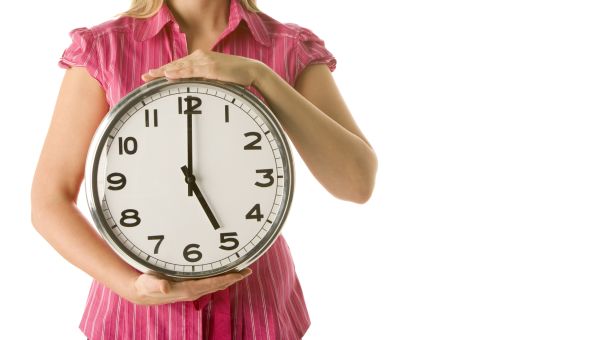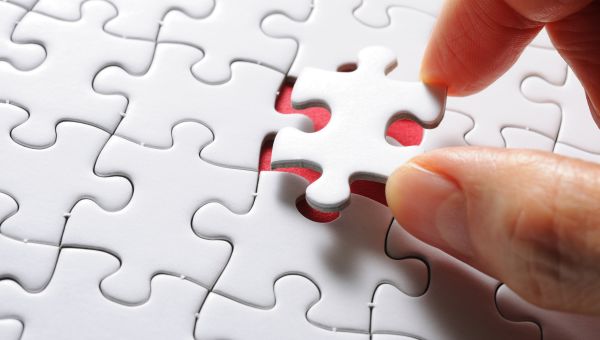Getting organized with ADHD
Learn how strategies for getting organized can help manage your symptoms.
Updated on August 12, 2024

Getting organized can be challenging for many people. But if you have attention-deficit/hyperactivity disorder (ADHD), it can be even more challenging. But did you know that getting organized may help manage your symptoms?
Try these organizational strategies to help make managing ADHD easier.

Collect your thoughts
It can be hard to organize your life when your mind feels cluttered. To help collect and sort the things running through your brain, jot down your to-do list and all of your thoughts and ideas. That means writing down not just appointments, phone calls to make, bills to pay, errands to run, and… Show More
It can be hard to organize your life when your mind feels cluttered. To help collect and sort the things running through your brain, jot down your to-do list and all of your thoughts and ideas. That means writing down not just appointments, phone calls to make, bills to pay, errands to run, and other daily tasks, but also your ideas and thoughts, like your dreams for the future, your feelings about your friends or family members, or even just your thoughts on the movie you saw last night.
Use both a day planner and a personal journal. Writing things down can help free up your mind. If you don't have time to write, texting yourself reminders each day or using the memo recording feature on your smartphone can work, too.
Show Less
Decluttering
Isn't it amazing how quickly papers and clutter accumulate? Schedule 30 minutes each day to sort through old papers, junk mail, magazines, and other household items that have piled up. Toss what you no longer need. Stash the rest out of sight in color-coded and labeled bins, storage containers, or… Show More
Isn't it amazing how quickly papers and clutter accumulate? Schedule 30 minutes each day to sort through old papers, junk mail, magazines, and other household items that have piled up. Toss what you no longer need. Stash the rest out of sight in color-coded and labeled bins, storage containers, or file folders. And twice a year, do a trip to the Goodwill, the Salvation Army, or another local thrift store to donate usable items that you no longer need. To avoid losing or misplacing important items, like your keys and unpaid bills, put them in the same highly visible place every day.
Show Less
Time management
When you have ADHD, time management can become complicated, thanks to distractions or thoughts that jump from one thing to the next. Distractions can make it tough to finish things.
Strategy: Create a structured, daily schedule for completing tasks, and use a daily planner or calendar to keep… Show More
When you have ADHD, time management can become complicated, thanks to distractions or thoughts that jump from one thing to the next. Distractions can make it tough to finish things.
Strategy: Create a structured, daily schedule for completing tasks, and use a daily planner or calendar to keep yourself on track.
Set cell phone alarm reminders an hour—or a day—before different pieces of the task are due. That way, each piece of the project, each appointment, and each step in your week stays top of mind. And use that alarm to get yourself out the door well ahead of when you think you need to leave to make appointments.
Show Less
Set your priorities
What's the absolute most important thing you'd like to get done this month? Or this week? Or today? If you haven't thought about it, try to figure it out. Because while using a to-do list or daily planner is great, those tools work more effectively if you learn to prioritize the tasks you put in… Show More
What's the absolute most important thing you'd like to get done this month? Or this week? Or today? If you haven't thought about it, try to figure it out. Because while using a to-do list or daily planner is great, those tools work more effectively if you learn to prioritize the tasks you put in them.
Here's a tip to help you do that: Create a master to-do list of both your short- and long-term goals, along with all the steps needed to accomplish each item. Then, rewrite the to-do list, putting the most urgent or important goals and steps at the top of the list. This will help you prioritize your daily, weekly, and monthly schedule so that critical things get done in a timely manner.
Show Less
Break it up
Facing a big task with lots of pieces can feel overwhelming when you have ADHD. Take every large, long-term project in your day planner, and break it up into small, easy-to-complete, doable steps. Then, make sure to schedule each of those steps in your day planner. Remember not to schedule too many… Show More
Facing a big task with lots of pieces can feel overwhelming when you have ADHD. Take every large, long-term project in your day planner, and break it up into small, easy-to-complete, doable steps. Then, make sure to schedule each of those steps in your day planner. Remember not to schedule too many steps in a single day, and always give yourself some flexibility around deadlines.
Also, try to focus on—and complete—one step or task at a time. Try not to jump ahead to the next one. Finally, track your progress and establish milestones along the way. Reward yourself when you complete a task or stay on track.
Show Less
Plan ahead
Have a busy day coming? Planning ahead can be critical. It can help you feel less stressed and scattered.
For example, when you know you have a busy day coming up, start getting ready the night—or even two nights—before. Launder and lay out your clothes for the big meeting, get your lunch packed… Show More
Have a busy day coming? Planning ahead can be critical. It can help you feel less stressed and scattered.
For example, when you know you have a busy day coming up, start getting ready the night—or even two nights—before. Launder and lay out your clothes for the big meeting, get your lunch packed and in the fridge, and look for your car keys the night before so you're more likely to be calm on the big day. If you've scheduled a long list of errands to run on a given day, write a list of all the stops you have to make and what you have to do, buy, or pick up at each one. If you drive, fill up the gas tank the night before.
Show Less
Consider an organization coach
Getting your life organized can be challenging. So, if it’s hard to get started, consider hiring an organizational coach who specializes in adult ADHD. The right coach not only will help motivate you but also will help you develop your own abilities to more effectively manage details, manage your… Show More
Getting your life organized can be challenging. So, if it’s hard to get started, consider hiring an organizational coach who specializes in adult ADHD. The right coach not only will help motivate you but also will help you develop your own abilities to more effectively manage details, manage your time, prioritize your tasks, structure your environment, and stay on schedule. It can be a wonderful investment because organizational skills may be all that stands between you and that fabulous feeling of being able to look back on a productive day, week, or year.
Show Less
Consider prescription medication
If you follow these tips but find you still need help managing your symptoms of ADHD, talk to a healthcare provider (HCP) about whether medication might help you. The most common medications for ADHD include stimulants, non-stimulants, and sometimes antidepressants.
Stimulants like methylphenidates… Show More
If you follow these tips but find you still need help managing your symptoms of ADHD, talk to a healthcare provider (HCP) about whether medication might help you. The most common medications for ADHD include stimulants, non-stimulants, and sometimes antidepressants.
Stimulants like methylphenidates and amphetamines can help raise the levels of brain chemicals that help you think and pay attention, like dopamine and norepinephrine. There are two types of stimulants—short-acting, which can be taken as needed, and long-acting daily medicines.
Non-stimulants, such as atomoxetine, can help manage impulsive behavior and improve your focus so you can get organized. They’re usually prescribed to be taken regularly and will start to work fully after three or four weeks.
Certain antidepressants may be prescribed on their own or in combination with a stimulant. Though antidepressants aren’t technically meant for treating ADHD, they can sometimes be helpful for a variety of ADHD symptoms, especially for people who experience side effects from stimulants.
Show Less
Children and Adults with Attention-Deficit/Hyperactivity Disorder (CHADD). Workplace Issues. Page accessed June 22, 2024.
National Institute of Mental Health. Attention-Deficit/Hyperactivity Disorder. Page last reviewed September 2023.
Attention Deficit Disorder Association. ADHD Coaching: What Is It And How To Find An ADHD Coach. May 16, 2024.
Cleveland Clinic. ADHD Medication. Page last reviewed October 6, 2022.
Cleveland Clinic. Atomoxetine Capsules. Page accessed June 22, 2024.
More On


video

article

slideshow


video


video
